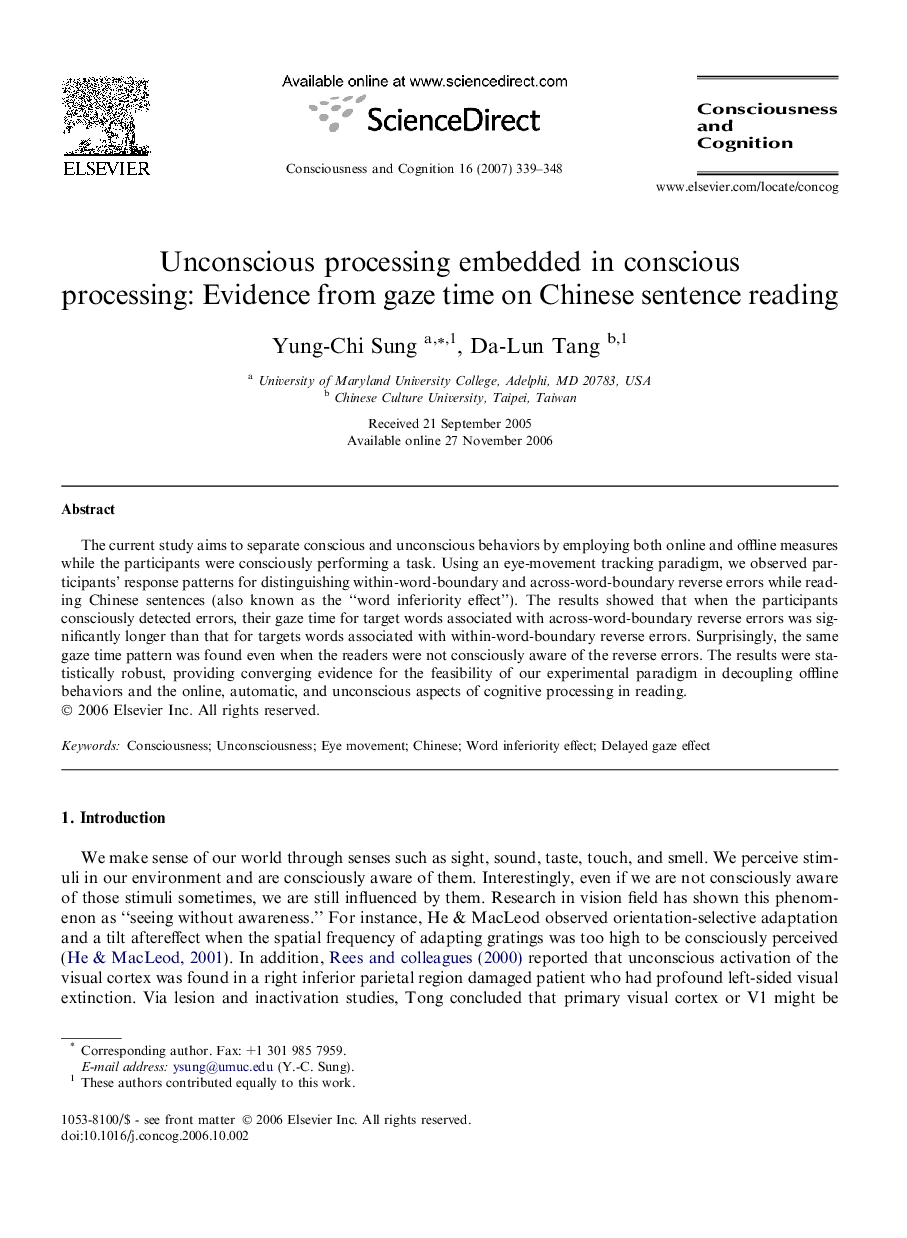| Article ID | Journal | Published Year | Pages | File Type |
|---|---|---|---|---|
| 928125 | Consciousness and Cognition | 2007 | 10 Pages |
The current study aims to separate conscious and unconscious behaviors by employing both online and offline measures while the participants were consciously performing a task. Using an eye-movement tracking paradigm, we observed participants’ response patterns for distinguishing within-word-boundary and across-word-boundary reverse errors while reading Chinese sentences (also known as the “word inferiority effect”). The results showed that when the participants consciously detected errors, their gaze time for target words associated with across-word-boundary reverse errors was significantly longer than that for targets words associated with within-word-boundary reverse errors. Surprisingly, the same gaze time pattern was found even when the readers were not consciously aware of the reverse errors. The results were statistically robust, providing converging evidence for the feasibility of our experimental paradigm in decoupling offline behaviors and the online, automatic, and unconscious aspects of cognitive processing in reading.
